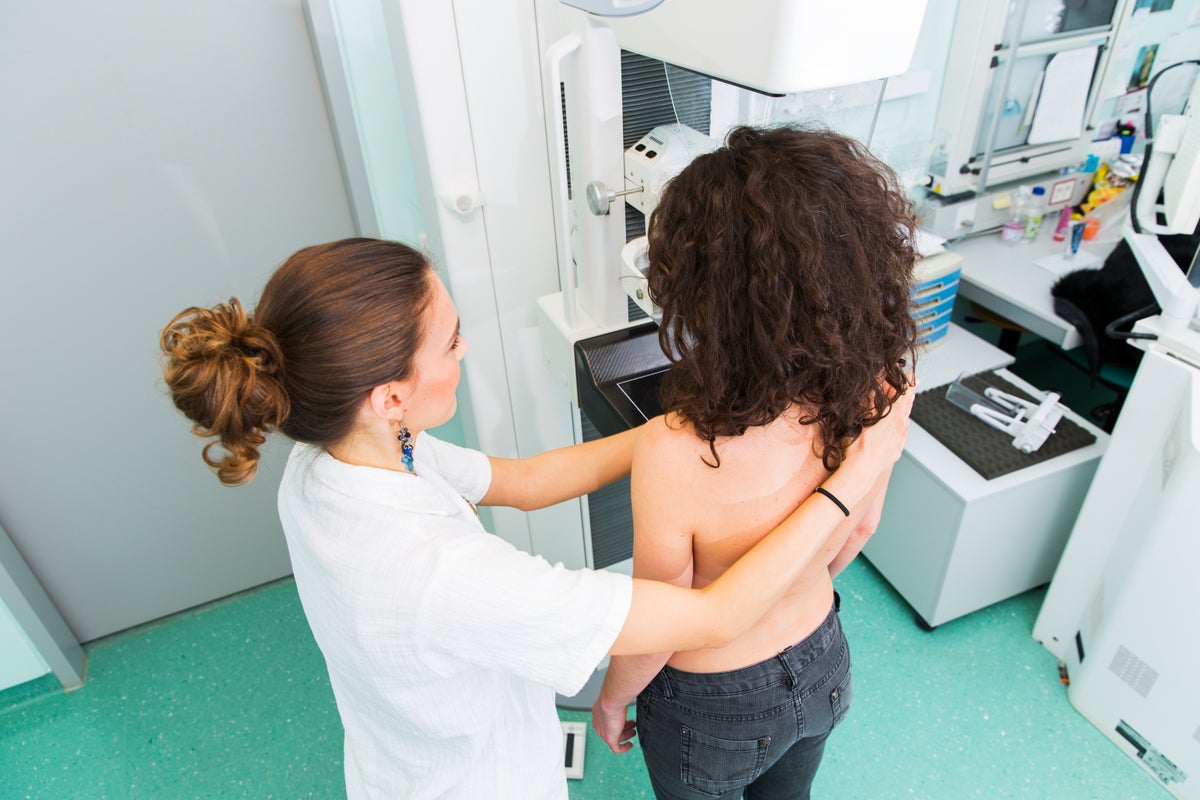
A new “life-extending” drug has been recommended for use via the NHS to treat women with breast cancer, in a move campaigners have hailed as a “momentous milestone”.
The National Institute for Health and Care Excellence (Nice) has recommended the drug, Trodelvy, should be given to women with triple-negative breast cancer – a highly aggressive form of the disease which is tricky to find treatments for.
Baroness Delyth Morgan, chief executive of Breast Cancer Now, said: “Today’s news that Trodelvy has finally been recommended by Nice for use on the NHS in England, marks a momentous and hugely anticipated milestone for women living with incurable triple-negative secondary breast cancer.”
But Lady Morgan criticised the “unacceptably difficult journey to get to this point for those affected”, warning Nice only recommended Trodelvy “10 agonising months” after the Medicines and Healthcare Products Regulatory Agency licensed the drug.
She added: “Patients living with incurable secondary breast cancer deserve better. Crucial lessons must be learnt to avoid scenarios like this happening again, and we will continue to demand more for people affected by breast cancer.
“Working with the government, NHS England, Nice and pharmaceutical companies to ensure new, clinically effective treatments reach patients as quickly as possible, at a fair price for the NHS.”
Lady Morgan called for “urgent confirmation” about when Trodelvy will be routinely available to patients getting NHS care in Wales and Northern Ireland.
She added: “Following a devastating provisional rejection in April, this landmark decision will offer a new, effective treatment for these women, and crucially give them the hope of invaluable extra months to live and do what matters most to them and their loved ones.”
Breast Cancer Now and their “patient advocates and passionate campaigners were pivotal” in helping to secure the decision, she added.
Nicola, who lives in Bristol, was diagnosed with triple-negative breast cancer in July 2018 and was then diagnosed with secondary triple-negative breast cancer in April 2020. The 42-year-old had taken Trodelvy since November 2021.
She said: “Living with secondary triple-negative breast cancer is like walking a tightrope every day and treatment options are limited.
“That’s why it is such a huge relief that all eligible women will now be able to access Trodelvy with ease and have the chance to benefit from it.
“Not knowing if it would be available to those that needed it was so hard. I have been on Trodelvy since November 2021 and scans have shown that my tumours are shrinking.”
Nicola said the drug had provided her with hope. “That is why I’ve been campaigning with Breast Cancer Now to ensure Trodelvy was made available on the NHS and that other women could have the same chance to benefit from it and have extra precious time with their loved ones,” she added.
Around 55,000 women are diagnosed with breast cancer in Britain each year, with approximately one in five being triple-negative. Younger women and black women are more likely to develop this form of breast cancer which is generally more aggressive.
Breast cancer is the most prevalent type of cancer in the UK and the disease claims around 11,500 women’s lives every year.
Professor Christopher Twelves, who is an honorary consultant in oncology at Leeds Teaching Hospitals, said: “Treating women with triple-negative breast cancer has been notoriously challenging and, once the cancer has spread, there have been few treatment options that meaningfully impact on survival.
“Today’s decision changes that. We now have the option to use a potent, targeted therapy that has definitively shown potential to increase survival compared with standard chemotherapy. This is not a cure, but for many women with triple-negative breast cancer it offers some vitally important extra months with their loved ones.”
One in seven women in Britain will develop breast cancer at one point in their life – with one woman diagnosed every 10 minutes.
A study last week found giving birth to a child after having breast cancer has no detrimental effect on the woman’s prospects of surviving the illness.







